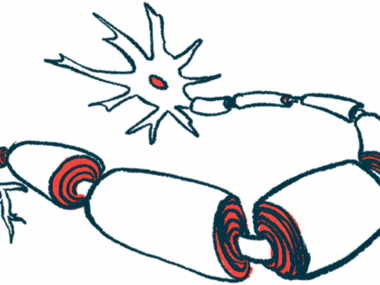MS Australia awards incubator grants to four research projects
Yearlong support for work into MRI scans, myelin repair, inflammation
Written by |

Four researchers working in multiple sclerosis (MS) were awarded incubator grants in MS Australia’s latest funding round, which they’ll use to kickstart projects designed to better understand the progressive neurodegenerative disease.
Worth a total of AU$92,565, or roughly $60,000, this round of incubator grants provides seed funding to support early research into MRI scans and artificial intelligence, myelin repair, and MS diagnosis and management.
These yearlong grants are “not only an investment in research but also the researchers themselves,” Julia Morahan, PhD, MS Australia’s head of research, said in a press release from the nonprofit organization. “Each of these projects and the dedicated teams behind them showcase Australia’s position at the forefront of MS research.”
Quicker and more accurate reading of MRI scans can guide tailored treatment
Heidi Beadnall, MD, PhD, a neurologist at the University of Sydney, and her team will use artificial intelligence to explore if the number of brain lesions — and their volume — can be accurately determined from routine MRI scans using automated processes.
In MS, lesions are regions that show up on brain and spinal cord MRIs when the protective myelin covering of nerve fibers becomes damaged, often causing disability. While lesions are often a key factor in diagnosing MS and tracking its progression, their quantitative analysis is challenging and time consuming.
“In the clinic, people with MS (as well as their families, friends and carers) often ask questions like ‘How many MS lesions do I have?’, and ‘Do I have brain atrophy (shrinkage)?’ Currently these questions cannot be answered accurately,” Beadnall said.
The project, aiming to provide rapid access to accurate and detailed analyses of MRI scans, “addresses this unmet need,” she added.
AI-driven automated analysis could help to speed the process while providing doctors with information needed to guide tailored care, such as the best MS treatment for a patient and how well it is working.
Two other projects, led by Natalie King at the University of Tasmania and Simon Murray, PhD, with the University of Melbourne, focus on myelin repair, which could stop and possibly reverse some of the disability caused by MS.
King and her team at the university’s Menzies Institute for Medical Research will study what stops myelin from being repaired after an immune system attack. They’ll also look at factors that drive myelin-producing cells to promote repair.
Murray’s team will use a zebrafish model to better understand how myelin is formed and maintained throughout life. Among its aims is the identification of key molecules that could serve as new therapeutic targets.
MS Australia goal: Work that advances ‘goal of stopping MS in its tracks’
The final funded project, led by Mohammad Haskali, PhD, also with the University of Melbourne, will focus on developing new ways to monitor disease relapses or flares, periods when new MS symptoms appear or existing ones worsen.
His team will explore whether an imaging technique called positron emission tomography (PET) may be used to measure inflammation in individual brain cells. To do this, they’ll develop and use PET tracers to tag a specific protein in the brain that previous work by this team found “is involved in driving and sustaining MS progression.” A goal is to measure and accurately track neuroinflammation in real time, improving diagnosis, monitoring, and treatment.
“We are facing accelerating numbers of MS in Australia, so we are more determined than ever to explore every possible avenue to find solutions,” Morahan said. “The complexity of MS means that it’s absolutely crucial we support trailblazing ideas from our brightest minds, with the ultimate goal of unearthing new and better strategies to combat this condition effectively.”
“These innovative projects hold great promise for advancing MS research. I eagerly await the outcomes as they have the potential to bring us closer to our goal of stopping MS in its tracks,” Rohan Greenland, CEO of MS Australia, said in a separate press release.



